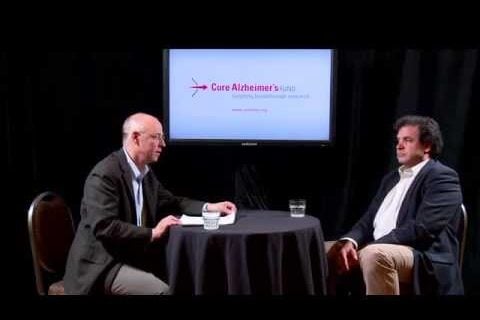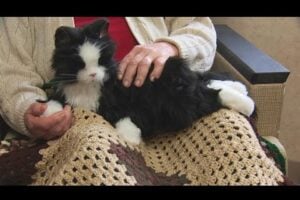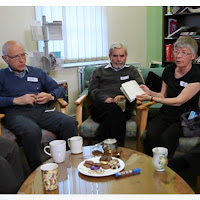Caregiving Info – Free Booklets
- Caring for a Person with Alzheimer’s (Your Easy-to-Use Guide)
- So Far Away (Twenty Questions for Long Distance Caregivers)







This site was inspired by my Mom’s autoimmune dementia.
It is a place where we separate out the wheat from the chafe, the important articles & videos from each week’s river of news. Google gets a new post on Alzheimer’s or dementia every 7 minutes. That can overwhelm anyone looking for help. This site filters out, focuses on and offers only the best information. it has helped hundreds of thousands of people since it debuted in 2007. Thanks to our many subscribers for your supportive feedback.
The site is dedicated to all those preserving the dignity of the community of people living with dementia.
Peter Berger, Editor
Share this page To

A certain protein in the blood can be used to predict the eventual appearance of Alzheimer’s. Will this allow for early intervention?

The spice turmeric contains curcumin. In a UCLA study, curcumin significantly improved memory and mildly improved mood in people with memory problems.

Researchers have found links between certain viral illnesses — like the flu — and the risk of Alzheimer’s. Learn more.

In this video, “Voice of Dementia”, see real people in a dementia support-group talk about their lives, their diagnosis and the importance of being heard.
Visit Alzheimer's Weekly On
Alzheimer’s & Dementia Weekly was inspired by my mother’s journey with autoimmune dementia and my dad’s with Parkinson’s dementia.
Walking beside them opened my eyes to the confusion, the courage, and the deep humanity found in families and professionals caring for someone they love.
Since its debut in 2007, this site has had one clear mission:
to separate the wheat from the chaff — to highlight only the most essential articles, studies, tools, and videos from the overwhelming river of dementia-related information.
(At last count, Google receives a new post on Alzheimer’s or dementia every seven minutes.) For anyone seeking clarity or support, that constant flow can be exhausting and discouraging.
Alzheimer’s Weekly filters, translates, and explains what matters most, helping hundreds of thousands of families, clinicians, and care teams around the world make sense of the latest research and best practices.
This site is dedicated to everyone who works—often quietly and tirelessly—to preserve dignity in the community of people living with dementia.
With experience in dementia caregiving, public education, and Alzheimer’s-focused writing—and a professional research background shaped in what many consider one of the world’s top laboratories—I work to make complex findings clear, practical, and genuinely helpful for both families and professionals providing care.
My goal is simple:
Translate the best science into guidance that lightens the load, strengthens understanding, and helps every person with dementia live with dignity.
Peter Berger
Editor, Alzheimer’s Weekly
According to Dr Lawrence Honig, Columbia, "if" the person has Alzheimer's – which is not always the case in dimentia, then there is only a 10% chance that the person carries a gene for it. And since genes are passed down to this person's children from both the father and mother, then there is only a 50% chance that a child will receive the gene from the affected parent. In the end, only 5% of Alzheimer's patients will pass an Alzheimer's mutation to their children. On the bright side 95% will not pass down this mutation.
Congratulations dear Jeffrey for your great comment, well fundamented in logic and in correct scientific premises.
My husband's family has a long history on his dad's side. His paternal grandmother had it in her 60s as did his dad, aunt and uncle. My husband was diagnosed at 59, his younger sister at 55. Makes me glad we did not have bio children to chance passing this on to but his sister does and they are terrified.
We knew my husband's maternal aunt has Alz and is in a home now. She is in her 80's. But we also found out that his paternal grand mother had had it and had been taken care of by family members. He hadn't know it was on both sides of his family. He was diagnosed 4 years ago. he is now 70 and in mid-stage. the doctor just doubled his Razadine and we are waiting a few weeks to see if he gets any more symptoms, or accelerated ones.